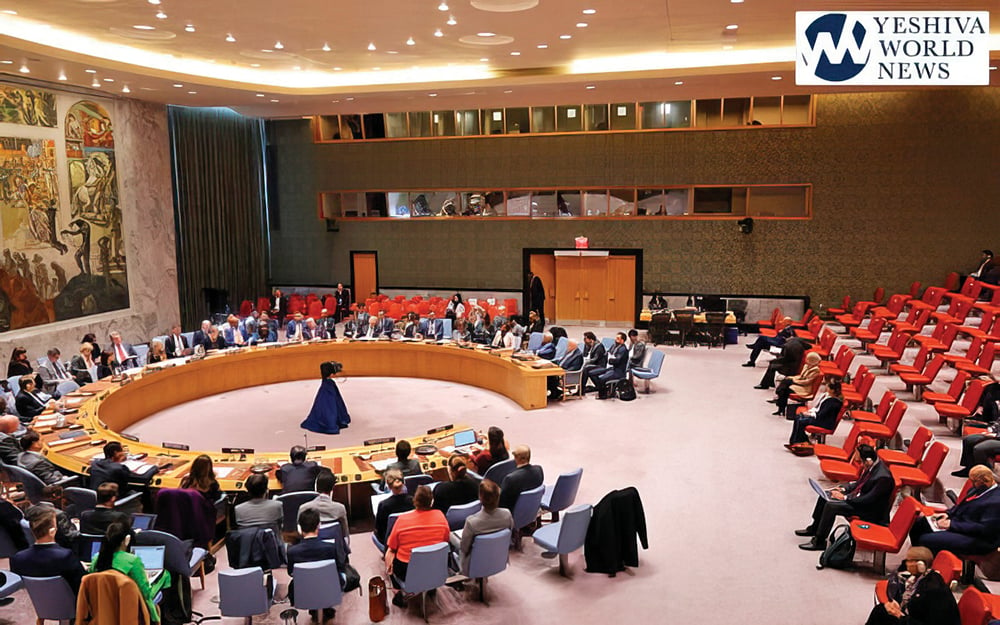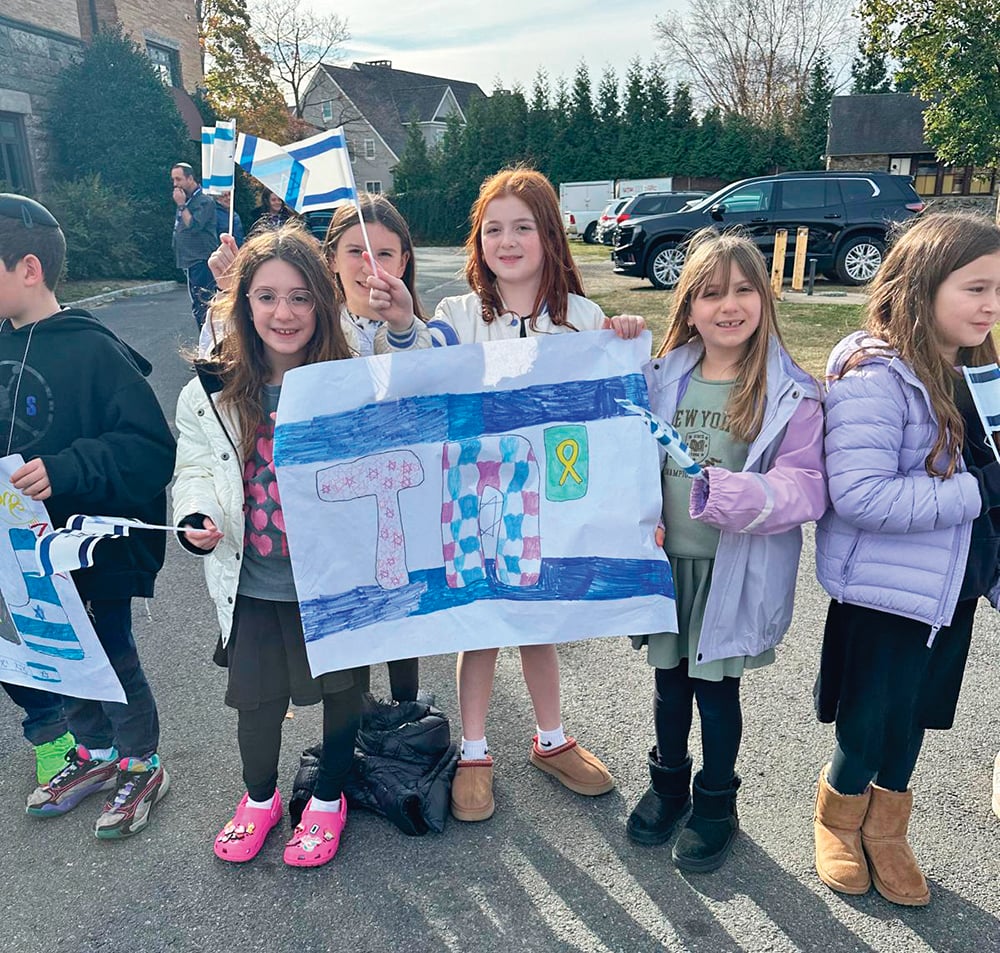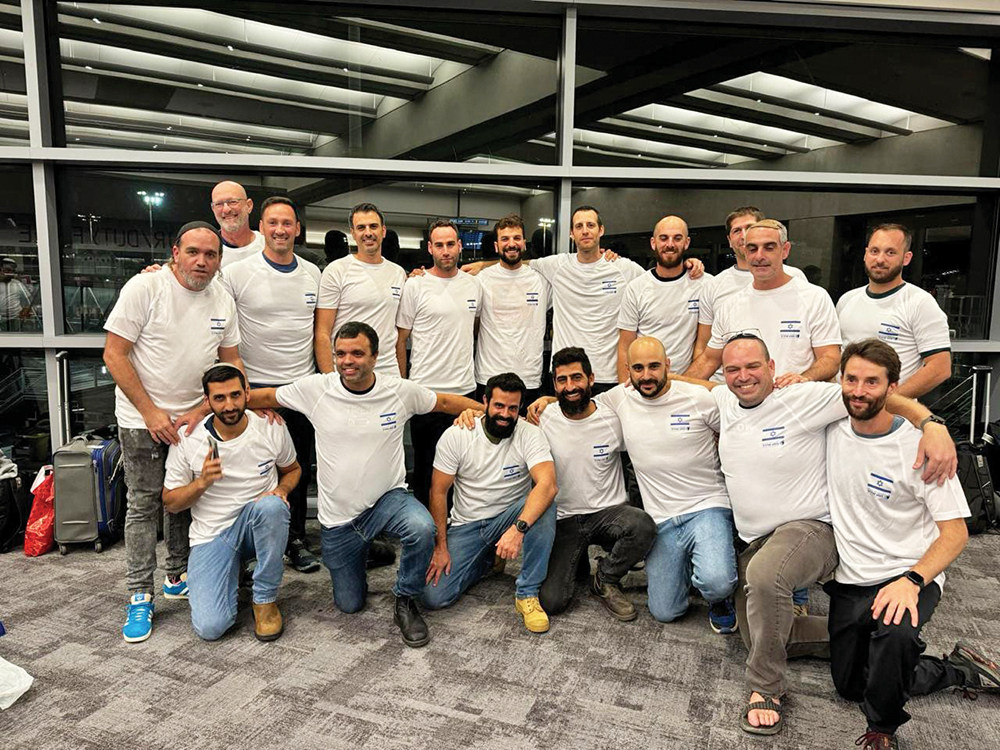Last year, my wife and I were in Eretz Yisrael during the week preceding Parshas Beshalach, helping our daughter and son-in-law with their new baby girl. One afternoon, we took the bus to Kever Rachel, making many stops throughout Yerushalayim and arriving a lot later than expected. Usually, the bus waits half an hour for the people to enter and daven before taking them back to Yerushalayim. Upon arriving, however, the bus driver said that we had only 13 minutes to be back on the bus! No way did we have time to daven Mincha and say some Tehillim. I thought to myself, “How often do I get the chance to be at Kever Rachel? I really don’t want to be rushed.” I told my wife that we’ll take more time at the Kever and figure out another way to get back to Ramat Eshkol.
When I finished davening, I waited outside for my wife to come out. Lo and behold, I saw that my good friend Rabbi Ilan Ginian from America was there. What a treat to see him! We talked for a couple of minutes; then I asked him how he got there. “I rented a car and drove here,” he said. I couldn’t help but ask, “Any chance you can give my wife and I a ride back to Yerushalayim?” “Sure, I have exactly two extra seats,” he replied. It was incredible to experience such hashgachah pratis (Divine Providence). What’s more, Rabbi Ginian said they were supposed to be at the Kever much earlier in the day but got lost along the way. And … my friend was even going to the same neighborhood as us in Yerushalayim!
In Parshas Beshalach, after the Jews left Mitzrayim, Hashem provided Clouds of Glory during the day to guide them in their travel in the desert, and pillars of fire at night. Additionally, Hashem provided Klal Yisrael with mann — heavenly food. Both of these miracles were with the Jews for 40 years while they were in the desert. Hashem instructed Moshe at one point to place mann in a flask to save for future generations. Rashi says that the prophet Yirmiyahu took out the flask of mann and told the Jewish nation at that time, “Why are you slacking in serving Hashem because you’re worrying about your livelihood? Look at this flask of mann from the time of Moshe and see that Hashem can provide food for you.”
But how could the flask of mann alleviate the people’s concern? Of course Hashem could provide food, but Hashem was not dropping mann from heaven during Yirmiyahu’s time — that’s why they were worried!
The Slonimer Rebbe explains that although the overt miracle of the mann falling from heaven was not taking place, Hashem continues to provide sustenance in miraculous fashion — albeit in a more hidden manner — for those who trust in Him.
The same applies to all the miracles Hashem performed for the nation in the desert. These miracles were not “one and done” — they continue in our times, but in a more hidden fashion. Just as Hashem guided the Jews in the desert, Hashem guides us daily. Sometimes we are able to see this more readily, such as when I saw Hashem arrange a ride for us back to Yerushalayim from Kever Rachel.
The same is true regarding the splitting of the sea when the Jews were fleeing Egypt’s army. We also have this type of miracle … but in a more subtle manner. For example, you may be driving in incredibly heavy traffic and all of sudden the lane clears. Or you may be at an impasse in dealing with a problem and suddenly there’s an opportunity to solve it. This type of unexpected positive experience is our own krias yam suf (splitting of the sea).
May our eyes and our hearts be fully open to see the wondrous ways of Hashem in our daily lives, and thereby strengthen our faith in and love for Hashem. It may not be mann, or splitting waters, but Hashem’s Hand is always there providing for us and opening doors of opportunity to help us in life’s journey.
Rabbi Baruch Bodenheim is the associate rosh yeshiva of Passaic Torah Institute (PTI)/Yeshiva Ner Boruch. Rabbi Bodenheim can be reached at [email protected]. For more information about PTI and its Torah classes, visit www.pti.shulcloud.com.












